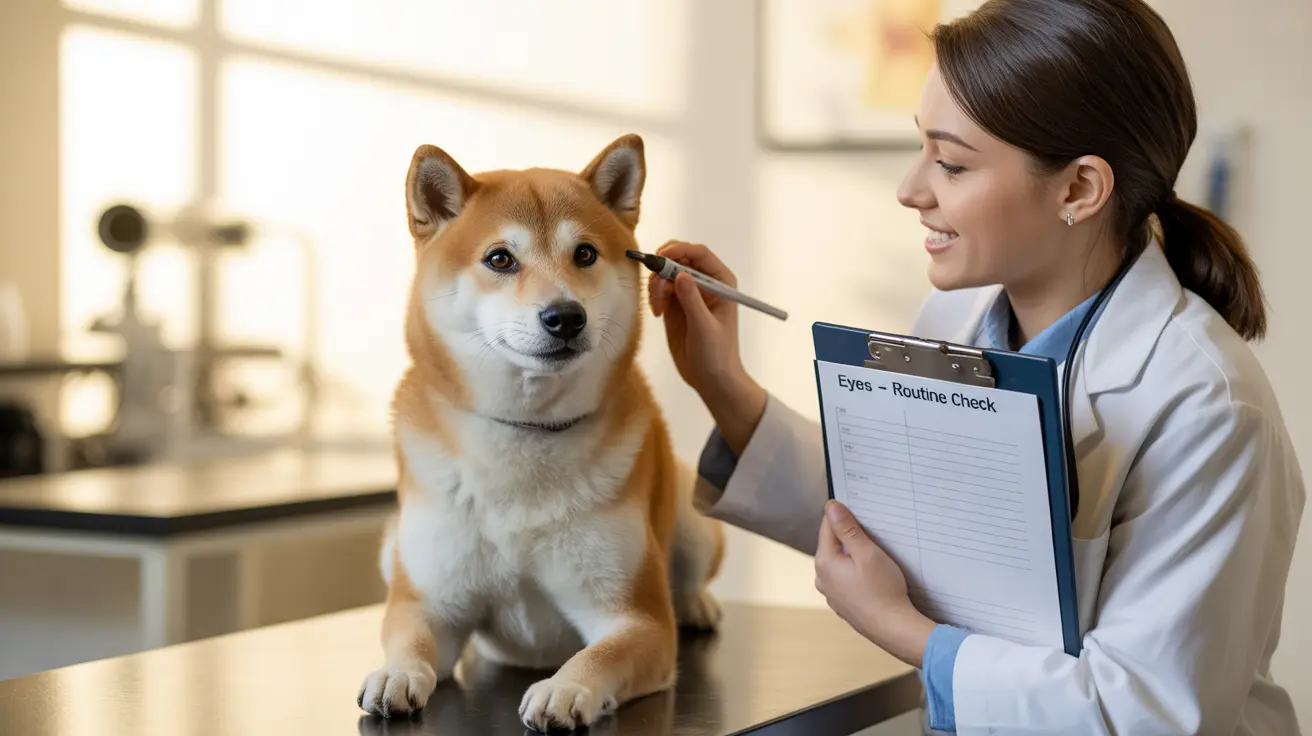Introduction
Understanding health issues with Shiba Inu is crucial for current and prospective owners of this ancient Japanese breed. While Shiba Inus are generally hardy dogs with a lifespan of 13-16 years, they are predisposed to several health conditions that require attention and proper management.
In this comprehensive guide, we'll explore the most common health challenges facing Shiba Inus, from orthopedic issues to genetic disorders, and provide expert insights on prevention and treatment options. Whether you're a current Shiba owner or considering adding one to your family, this information will help you ensure your dog's optimal health and well-being.
Common Orthopedic Conditions
Shiba Inus frequently experience orthopedic issues, with patellar luxation being one of the most prevalent concerns. This condition occurs when the kneecap dislocates from its normal position, causing limping and discomfort. Some dogs may show mild symptoms, while others might require surgical intervention.
Hip dysplasia, though less common in Shiba Inus than larger breeds, can still affect these dogs. This inherited condition can lead to arthritis and mobility issues over time. Regular veterinary check-ups can help detect these problems early, allowing for more effective management through medication, physical therapy, or surgery when necessary.
Allergies and Skin Problems
Atopic dermatitis is a significant concern for many Shiba Inus. These dogs often develop allergic reactions to environmental factors such as pollen, dust, and mold. Signs include excessive scratching, red or irritated skin, and recurring ear infections.
Food allergies can also affect Shiba Inus, though less commonly than environmental allergies. A proper diagnosis from a veterinarian can help determine the specific allergen and develop an appropriate treatment plan, which may include special diets, medications, or topical treatments.
Eye Health Concerns
Several eye conditions can affect Shiba Inus, including cataracts, glaucoma, and progressive retinal atrophy (PRA). Cataracts typically develop in older dogs and can lead to vision impairment or blindness if left untreated. Regular eye examinations can help detect these conditions early when treatment options are most effective.
Entropion, where the eyelid rolls inward, is another condition that can affect the breed. This condition can cause corneal irritation and should be addressed promptly to prevent complications.
Genetic and Neurological Disorders
GM1 and GM2 Gangliosidosis are rare but serious genetic conditions affecting Shiba Inus. These inherited disorders affect the nervous system and can cause progressive neurological decline. Genetic testing is available and should be performed before breeding to prevent passing these conditions to offspring.
Some Shiba Inus may also experience seizures, which can be related to epilepsy or other underlying conditions. Proper veterinary care and medication can help manage these neurological issues effectively.
Preventive Care and Management
Regular veterinary check-ups, proper nutrition, and maintaining a healthy weight are essential for preventing many health issues in Shiba Inus. Dental care is particularly important, as the breed is prone to periodontal disease. Daily tooth brushing and professional cleanings can help maintain oral health.
Exercise and mental stimulation are crucial for keeping Shiba Inus healthy and preventing obesity, which can exacerbate joint problems and other health issues. However, exercise should be monitored and adjusted based on the dog's age and individual health conditions.
Frequently Asked Questions
What are the most common orthopedic health issues in Shiba Inu and how can they be managed?
Patellar luxation and hip dysplasia are the most common orthopedic issues. Management includes maintaining a healthy weight, regular exercise, joint supplements, and in some cases, surgical intervention. Regular veterinary check-ups can help detect these problems early.
How can I recognize and treat allergies and skin problems typical in Shiba Inu dogs?
Common signs include excessive scratching, red or irritated skin, and recurring ear infections. Treatment may involve medicated shampoos, antihistamines, or prescription medications. Identifying and avoiding triggers is crucial for management.
What eye conditions should Shiba Inu owners watch for, and what treatments are available?
Watch for signs of cataracts, glaucoma, and PRA. Symptoms include cloudy eyes, squinting, or changes in vision. Treatment options range from medication to surgery, depending on the condition. Regular eye examinations are essential for early detection.
How important is dental care for Shiba Inu, and what are the best practices to prevent oral diseases?
Dental care is crucial for Shiba Inus. Best practices include daily tooth brushing, dental chews, and regular professional cleanings. Poor dental hygiene can lead to periodontal disease and other health complications.
What genetic neurological disorders are Shiba Inu prone to, and how can genetic testing help prevent them?
GM1 and GM2 Gangliosidosis are the primary genetic neurological disorders. Genetic testing before breeding can identify carriers and prevent affected puppies. There's no cure for these conditions, making prevention through testing essential.
Conclusion
While Shiba Inus face several potential health challenges, many of these conditions can be managed effectively with proper care and early intervention. Regular veterinary check-ups, genetic testing, and preventive care are key to maintaining your Shiba Inu's health and ensuring a long, happy life.






